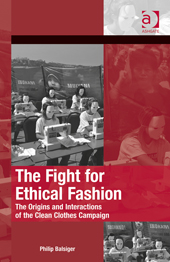The political sociology standing group’s section for the 2015 General Conference of the ECPR in Montreal is entitled ‘Political Engagement, Scholarship and Social Trajectories’.
The call for papers has just been published. Paper proposals must be submitted by February 16, 2015.
Below are descriptions of the six panels that are planned within the section. More information can be found here
Panel 1: Scholars and Public Intellectuals as Policy Advisers.
Jane Jenson and George Ross, University of Montreal.
How do scholars and public intellectuals respond to institutional crises? This panel invites papers exploring how veteran EU analysts and public intellectuals are responding to the Eurozone crisis. Is there an emerging collective imaginary of possible solutions or simply a polysemy of disjointed voices? Are scholarly voices being taken as seriously today in EU committees as they were in the past?
Panel 2: The Relationship between social trajectories and political careers: the revolving door of MPs, officials and lobbyists in the EU and in other national contexts
Stephanie Yates, University of Montreal and Hélène Michel, University of Strasbourg
Revolving door social trajectories of public office holders (POH) likely impacts their apprehension of political issues, their political decisions, and ultimately public policy. When POHs transfer to private activities within the same sector or when private sector leaders become POHs with responsibilities in the same arena conflicts of interest can emerge that politicize public service and compromise public institutions with private interests.
The objective of this panel is to discuss comparatively the revolving door in the European Union and in other national and subnational contexts: How frequent is the phenomenon? Has it been a growing trend in recent years? Which sectors of activities are the most concerned? Is it closely associated with particular political ideologies?
Panel 3: The Long-Term Impacts of 1970’s Feminist Activism in Various Contexts
Olivier Fillieule, University of Lausanne and Alban Jacquemart, Centre d’étude de l’emploi, Paris, France.
Personal and biographical consequences of feminist activism can affect the life-course of individuals in decisive ways. How do feminist commitments generate or modify dispositions to act, think, and perceive that are either consistent or contrast with previous socialization. In this panel, we would like to address (empirically, methodologically, and epistemologically) these kinds of questions with particular concerns for issues of sexual freedom and orientation, alienation from previous movement engagement, rethinking gender roles, and how « the personal is political » actually plays out in family and professional life.
Panel 4: Persistence and Transformation of Political Involvement: How Activism Reverberates through Diverse Life Spheres
Emilie Biland, Laval University and Bleuwenn Lechaux, University Rennes 2
This panel will devote special attention to how one’s activist involvements in political events or in formal or informal collectives can impact various life spheres (professional, family, and private). Paper proposals could address such questions as how activist skills transfer into professional skills, how one’s conceptions of family, affective relationships and friendship are revised or perpetuated, how activist social ties persist through time even after disengagement, and how commitments themselves are transformed or redesigned in the light of previous activist experiences?
Panel 5: Studying Activism: Methods of Data Collection and Analysis of Activism and Activists’ Careers
Davide Morselli, University of Lausanne and Julie Pagis, University of Lille 2
This panel will focus on methodological aspects of researching activist’s trajectories. Activists represent a non-randomly distributed population for which conventional survey and sampling methods may not apply. Political engagement and radicalization can impact activists’ lives far beyond the political sphere, such as in career, fertility, family, and health. Thus, the study of the diverse effects of activism faces the challenge of collecting complex and multifaceted data and using multiple analytical strategies able to take in consideration holistic processes. Paper proposals could address different methodological questions such as: What sampling strategies can be applied to study activism and activists’ life-course? What are the implications of using certain data collections modes (e.g. web survey, questionnaires, dairies, autobiographical interviews) and analytical methods (e.g., phenomenological analysis, longitudinal mixture methods, multi-channel sequence analysis, self-organizing-maps) ?
Panel 6: Academics as Politicians.
David Swartz, Boston University and Niilo Kauppi, Academy of Finland
The panel will address a question that has been, at least since Max Weber’s writings, on the agenda of political science and political sociology: the relationship academics have with politics. A key issue is the conversion of academics into either professional politicians or political activists and public intellectuals. Examples of these are numerous and include professors of IR becoming presidents of the European Commission (Manuel Barroso), or academics getting engaged in social movements (Michel Foucault, Pierre Bourdieu) or in political debates, like Jürgen Habermas concerning the future of the EU. Under what conditions do these conversions take place? What are the links between political culture and political engagement?

